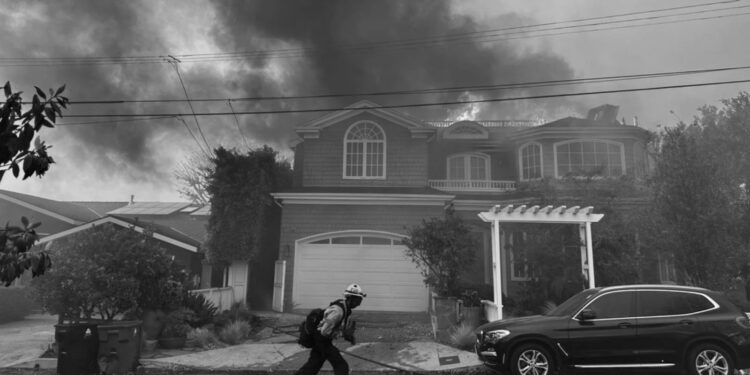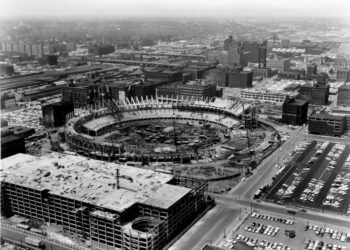Patrick Sisson’s recent Bloomberg piece, What LA’s Fires Mean for the City’s Housing Shortage, outlines the stakes. More than 12,000 structures, primarily single-family homes, were destroyed in the fires. Governor Gavin Newsom and Mayor Karen Bass have promised swift action, with streamlined permitting and expedited approvals. But their plans risk repeating past mistakes—replacing fire-prone single-family homes with equally vulnerable new builds—rather than addressing the systemic issues that make housing so scarce and expensive in LA.
A Housing Crisis on Fire
Los Angeles has long struggled to provide enough homes for its growing population. Zoning restrictions have locked most of the city’s land into single-family use, leaving little room for multifamily developments or denser housing options. Recent efforts to encourage upzoning have been modest at best, leaving housing advocates like Scott Epstein from Abundant Housing LA warning that the recovery could entrench the very policies that have created this crisis.
Adding to the complexity, rebuilding in fire-affected areas won’t be easy or cheap. Rising material costs, labor shortages, and stricter building codes will push construction timelines and budgets higher. For renters, who make up 56% of LA’s tenant population and are already rent-burdened, the disaster is another financial strain. Research shows that rents spike by up to 3% for months following disasters like this, worsening an already dire affordability crisis.
Opportunities Missed?
History shows that urban disasters can catalyze transformative change. Chicago rebuilt after its Great Fire of 1871; San Francisco did the same after its 1906 earthquake. But Los Angeles seems poised to miss this chance to modernize. With vast swaths of the city off-limits to denser developments due to zoning, most rebuilding efforts will reinforce the status quo: sprawling, costly homes that do little to alleviate the housing shortage.
There’s no shortage of ideas. Advocates suggest prioritizing denser housing in safer areas, expanding land available for multifamily projects, and reducing fees to jumpstart construction. But these solutions face stiff political resistance. As Sarah Karlinsky of the Terner Center for Housing notes, significant reforms are rarely advanced in the wake of disasters when emotions run high and political pressures are intense.
What Comes Next?
Governor Newsom and Mayor Bass have made their intentions clear: They want to rebuild LA quickly. But without broader reforms, their plans could deepen the region’s affordability crisis. Housing advocates, like Epstein, are pushing for more expansive changes that would make housing more resilient, affordable, and accessible.
Los Angeles has a chance to do more than rebuild what was lost. It can rethink how it approaches housing altogether. If it fails to seize this moment, the city risks not only repeating past mistakes but exacerbating the very crises that have made LA one of the most unaffordable cities in the nation.
As always, the solutions require bold leadership, a willingness to embrace trade-offs, and a focus on long-term prosperity over short-term convenience. Let’s hope Los Angeles rises to the challenge.









Beyond the spectacle, Kansas City prepares for World Cup reality